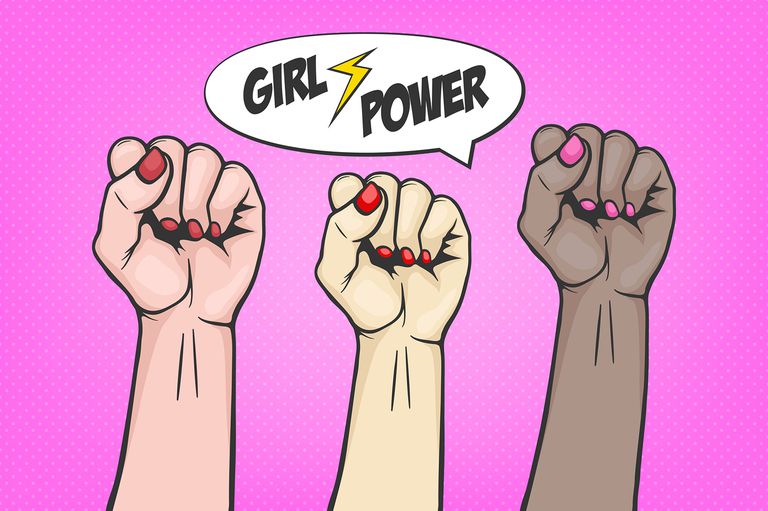Demystifying the concept of feminism in Nigeria (2): The religious perspective

By Chinagorom Ugwu
Last week, this writer started a series on feminism, examining various perspectives of the concept as it relates to Nigeria.
This edition of the series would be focusing on the religious perspective of feminism in Nigeria. You can read the first part here.
There are two major religions in the whole world. They are Islam and Christianity. And in Nigeria, like many countries of Africa, these are the major religions. The two religions are guided by two holy books- Holy Bible for Christianity and Holy Koran (or Quran) for Islam.
In Christianity, the holy Book Bible exposed the mind of God on feminism or equality of genders. God placed women under Men. From the beginning of creation, when Adam and Eve went against the order of God and ate the forbidden fruit courtesy of Eve who was deceived by the serpent, God pronounced punishment upon the women in Genesis 3:16 thus: “I will greatly multiply thy sorrow and thy conception: in sorrow thou shalt bring forth children: and they desire shall be to thy husband, and he shall rule over thee”. It is known that God also pronounced punishment on the man, but it does not bother on authority as the case with the woman.
Similarly, in Numbers 30:13, God gave men right to affirm or to annul any vow or promise that their wives have made. The verse reads, “Her Husband has the right to affirm or to annul any vow or promise that she has made”.
God is also very unequivocal when in 1 Cor 14: 33-37, through Apostle Paul, He ordered that women should not talk in the church, but should learn in silence. The verse reads: “Let your women keep silence in the churches: for it is not permitted unto them to speak; but they are commanded to be under obedience, as also saith the law. And if they will learn anything, let them ask their husbands at home: for it is a shame for women to speak in the church. What? came the word of God out from you? or came it unto you only? If any man think himself to be a prophet, or spiritual, let him acknowledge that the things that I write unto you are the commandments of the Lord”.
Another similar command was given against women’s authority in 1 Timothy 2: 11-13 thus: “Women should learn in silence and all humility. I do not allow women to teach or have authority over men; they must keep quiet. The following verses (verses 13-15) continued, “For Adam was created first, and then Eve. And it was not Adam who was deceived; it was the woman who was deceived and broke God’s law. But a woman will be saved through having children, if she perseveres in faith and love and holiness with modesty”.
The orders continue to reflect throughout different passages in the scripture and in Ephesians 5: 22-24, the word of God ordered that women must submit to their husbands. It reads, “Wives, submit to your husbands as to the Lord. For a Husband has authority over his wife just as Christ has authority over the Church; and Christ is himself the saviour of the church, his body. And so wives must submit completely to their husbands just as the church submits itself to Christ”.
Also, 1 Corinthians 11:7 says that man is the image and glory of God, but woman is the glory of man. Femininity does not mean or imply weakness; it is the glorious, splendid crown on humanity. Women are important in every society. It pleased the Lord to create woman to complement man, not to compete with him
However, whether most people or pastors or evangelists are obeying these commands or not does not make them inactive or repealed. They are in force! So, when Christians insist or struggle for equality in authority with men, they are contradicting or going against these commands.
The Commands were seen both in New Testament and Old Testament. Some Christian feminists have been using Galatians 3: 28 to defend their feminist philosophy in the Church. Galatians 3:28 reads: “In Christ there is no male or female.” However, the context of this verse is not about equal rights, but that all believers have the same position of humility at the foot of the Cross. It means that salvation is for all and not gender-based. The issue is not capability, but God-ordained positions within a God-ordained authority structure of male leadership. Other biblical passages that go into detail about gender-dependent roles show that Galatians 3:28 cannot mean the obliteration of those roles.
For Islamic Religion, the Holy Quran placed women under men. In Book Al-Nisa Chapter 4: 34, the Quran said that men are maintainers of women although some translations used authority or charge in place of ‘maintainers’. It reads, “Men are in charge of women by [right of] what Allah has given one over the other and what they spend [for maintenance] from their wealth. So righteous women are devoutly obedient, guarding in [the husband’s] absence what Allah would have them guard. But those [wives] from whom you fear arrogance – [first] advise them; [then if they persist], forsake them in bed; and [finally], strike them. But if they obey you [once more], seek no means against them. Indeed, Allah is ever Exalted and Grand”. Secondly, Quran reiterated that Men have authority over women thus, “Men have a degree over them”- [2:228]. Some translations put it thus: “…yet Men have a place above them (women)”. So, people who say that the cause of the difference existing between men and women in societies lay not in nature but in a man-made social framework can see that they are arguing in error.
Watch out for the next edition of the series on Friday.

